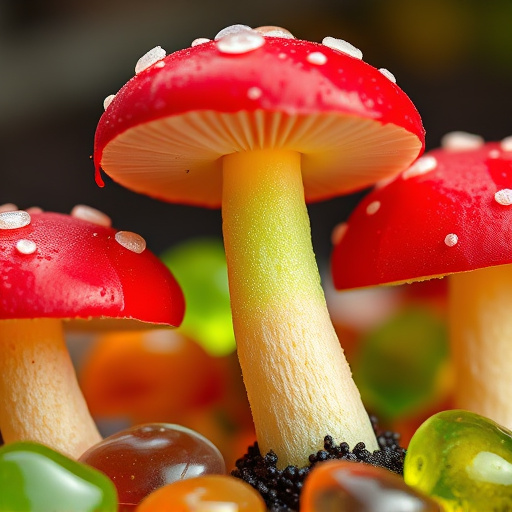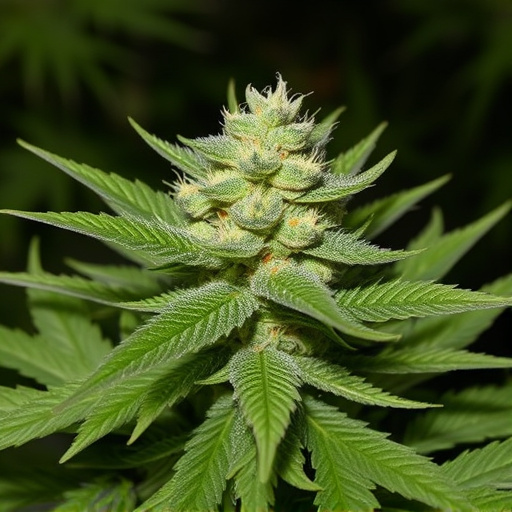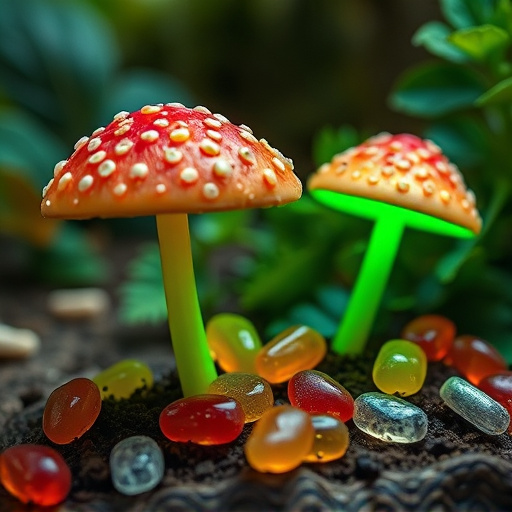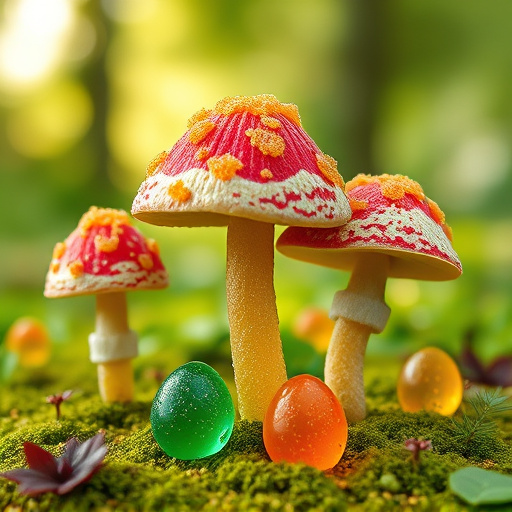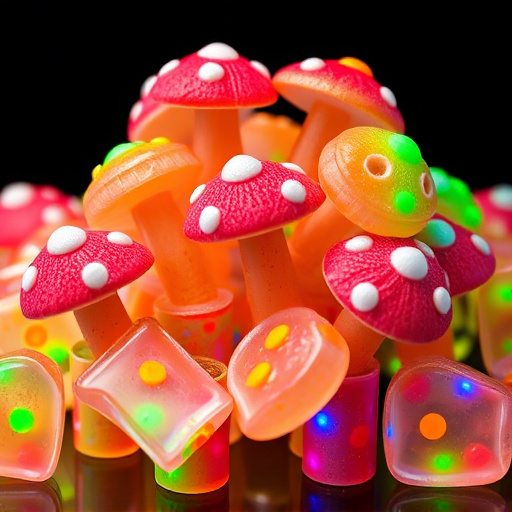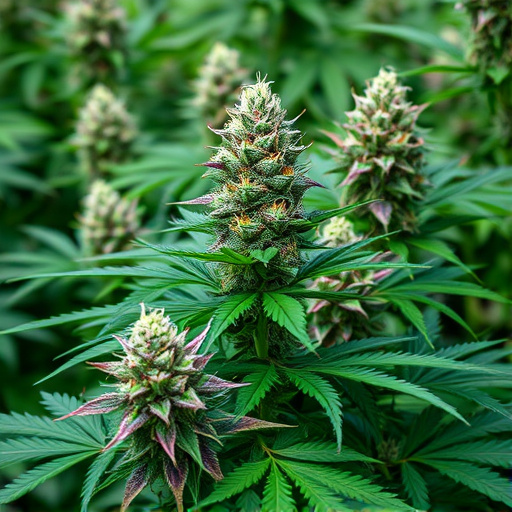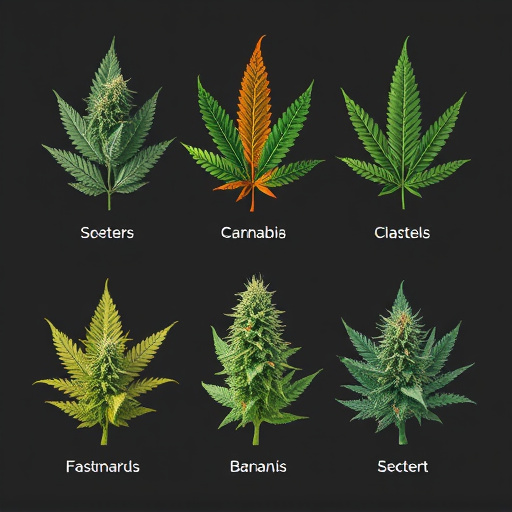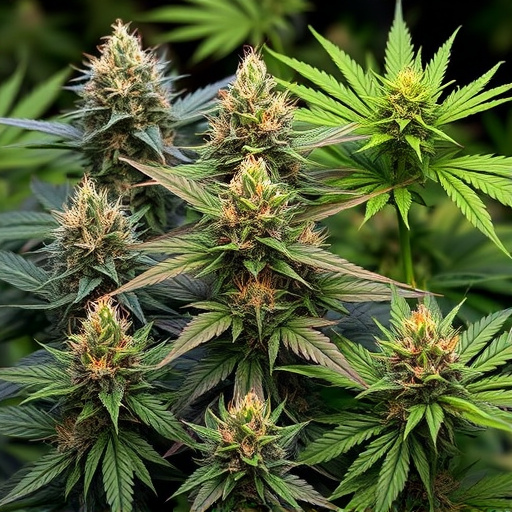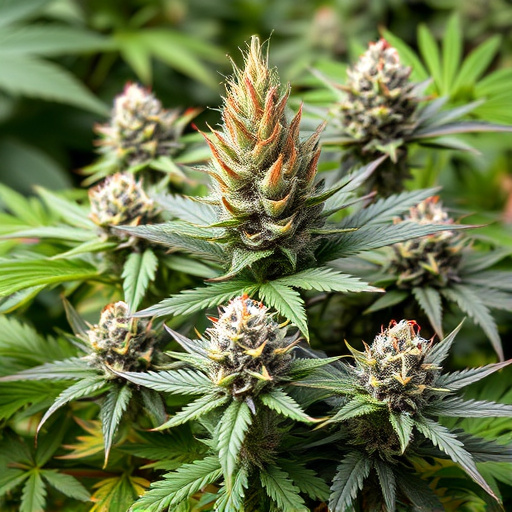The distinctive skunk aroma in cannabis is largely determined by genetic factors and terpene profiles, with various strains offering unique scent and flavor characteristics. Different cannabis strains possess specific genetic makeup that influences their aromatic compounds, or terpenes, which not only contribute to smell but also serve as natural defenses. Strains high in myrcene, a common terpene known for its earthy, musky aroma, tend to have stronger skunk scents. Breeders continually explore and manipulate these genetic lines, providing consumers with diverse terpene profiles catering to individual preferences for skunkier or more nuanced aromas, highlighting the key role of genetic diversity in shaping the varied scents among different cannabis strains.
“Unraveling the Secret to Skunkier Cannabis: A Scentful Journey
Different cannabis strains captivate our senses with their diverse aromas, and among these, the skunk-like scent is a standout. This intriguing characteristic isn’t just about odor; it delves into genetics, cultivation, and processing. We explore the science behind why some strains embrace the skunkier profile, from the genetic diversity that fosters unique terpene production to cultivation practices and storage techniques that either enhance or temper these pungent notes. Discover the factors contributing to this distinctive trait in cannabis.”
- Genetics and Terpene Profiles
- – How genetic diversity leads to varied terpene production
- – The role of specific terpenes in skunk-like aromas
Genetics and Terpene Profiles
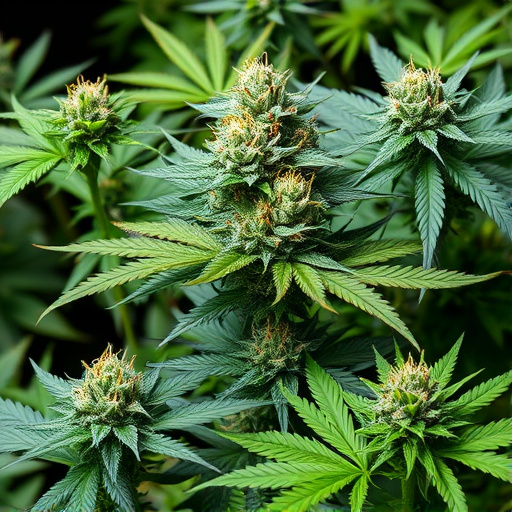
The distinct aroma of skunk is a well-known characteristic among cannabis enthusiasts, and it’s largely influenced by genetics and terpene profiles. Different cannabis strains carry unique genetic makeup, which determines their overall scent and flavor. Certain strains have evolved to produce higher levels of specific terpenes known for their pungent, skunk-like odors. Terpenes are aromatic compounds that not only contribute to the smell but also play a role in the plant’s natural defenses against pests and diseases.
Varieties with higher concentrations of myrcene, a common terpene, often exhibit stronger skunk scents. This is because myrcene has a earthy, musky aroma that can dominate other more subtle fragrances. As breeders continue to explore and manipulate these genetic lines, the range of terpene profiles in cannabis offers consumers a diverse array of smells, catering to individual preferences for skunkier or more nuanced aromas.
– How genetic diversity leads to varied terpene production
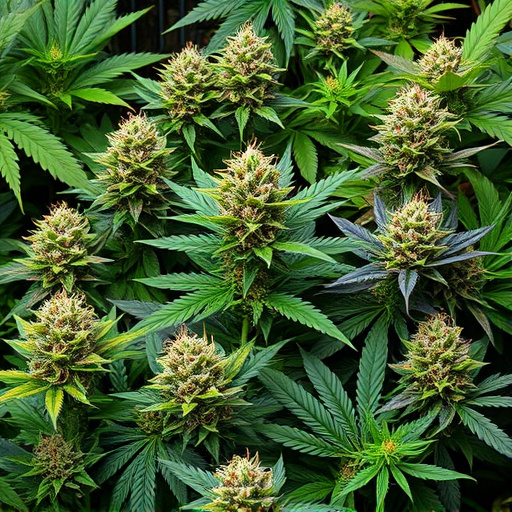
Cannabis plants, like all other organisms, exhibit genetic diversity, and this variety is one of the primary reasons behind the wide range of scents among different cannabis strains. Each strain possesses a unique combination of genes that influence the synthesis and production of terpene compounds, which are responsible for the characteristic aromas we associate with cannabis.
Genetic variations can lead to differences in terpene profiles, resulting in some strains smelling skunkier or more citrusy than others. Terpenes are volatile organic compounds produced by cannabis plants and other plants, contributing to their distinct scents and flavors. The interplay between genetic factors and environmental conditions determines the terpene composition of each strain, creating a vast array of aromatic experiences for consumers.
– The role of specific terpenes in skunk-like aromas
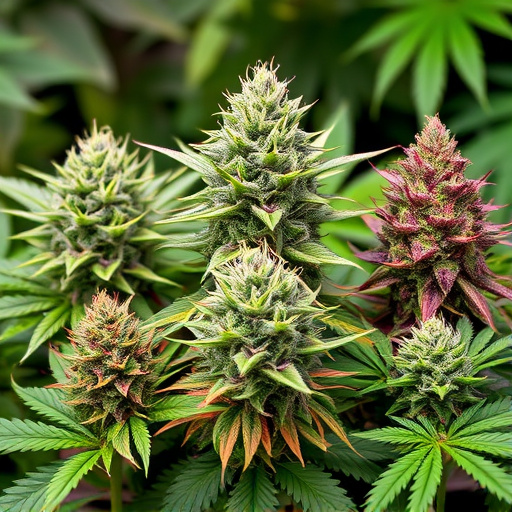
The distinctive skunk-like aroma associated with certain cannabis strains is largely attributed to specific terpenes, which are natural compounds that give plants their unique scents and flavors. Terpenes play a crucial role in shaping the olfactory experience of different cannabis strains. One terpene often linked to skunkiness is myrcene. It’s known for its earthy, musky, and slightly pungent notes, contributing significantly to the characteristic skunk aroma. Some strains have higher concentrations of myrcene than others, resulting in a more pronounced skunk-like scent.
Another terpene that can influence this aromatic trait is limonene. In contrast to myrcene’s earthy tones, limonene offers citrusy and uplifting aromas. The balance between these terpenes varies across different cannabis strains, leading to diverse scents—from fresh and fruity to pungent and skunkier profiles. This diversity underscores the complexity of the cannabis plant and why certain strains are known for their distinct, skunk-like fragrances.
The distinct skunk-like aroma associated with certain cannabis strains is a complex interplay between genetics and terpene profiles. Genetic diversity among cannabis plants results in varied production of terpenes, particularly those contributing to skunky notes. Understanding these natural variations allows cultivators and consumers to appreciate the unique characteristics of different cannabis strains, offering a diverse range of aromas and effects for everyone to enjoy.
